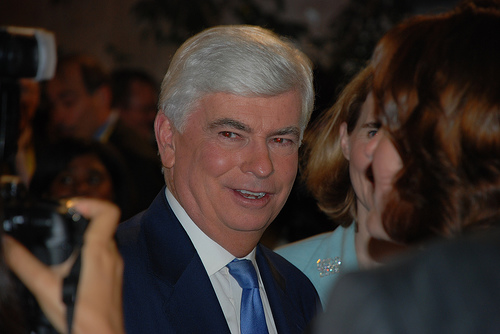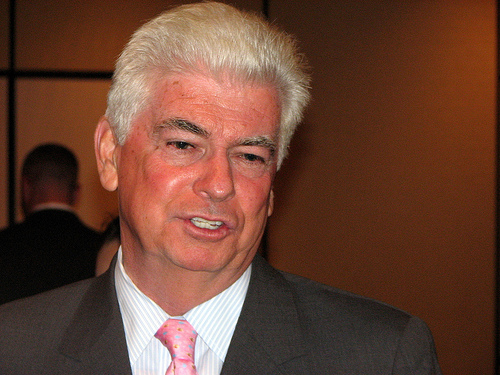That’s the message coming from the GOP’s lead negotiator in the Senate on a new Wall Street crackdown. Today Sen. Bob Corker (R-Tenn.), on CNBC to talk about the state of play in the Senate banking committee’s financial-reform negotiations, said no one should get their hopes up for a bill that tackles all parts of the financial-reform equation. “I don’t think we oughta try to pass legislation that solves every problem in the world,” Corker said. “I think when we do that we end up with things like [what] is happening right now with health care reform.” The junior senator from Tennessee added that a “middle of the road”—not too far to the left or the right—and “very solid” bill was the best outcome for the Senate banking committee, which has been embroiled in financial-reform talks for months now. (Below is the CNBC video, with more after it.)
On the one hand, Corker makes a fair point. Politics is compromise, and if the Democrats and Republicans on the banking committee try to inject their own ideologies into financial reform, we’ll still be waiting for the banking committee to release a bill in November. That said, a crisis, to borrow the well-worn adage, is a terrible thing to waste, and the financial crisis of 2008 and 2009 offered a once-in-a-generation opportunity for lawmakers to put aside partisan differences and pass a comprehensive, historic bill. That bill would do away with the government’s implicit bailout guarantee, protect consumers, shed some light on the derivatives industry, and try to end what Simon Johnson, former IMF chief economist, has called the “doom cycle.”
That window of opportunity, however, looks to have passed. Odds are, if and when the dust settles and a financial-reform bill lands on President Obama’s desk, that legislation will do far less than originally anticipated and possibly represent a victory for the financial services community. Sen. Corker’s comments today are further confirmation (if you needed more) that any chances of a major overhaul have disappeared.
















